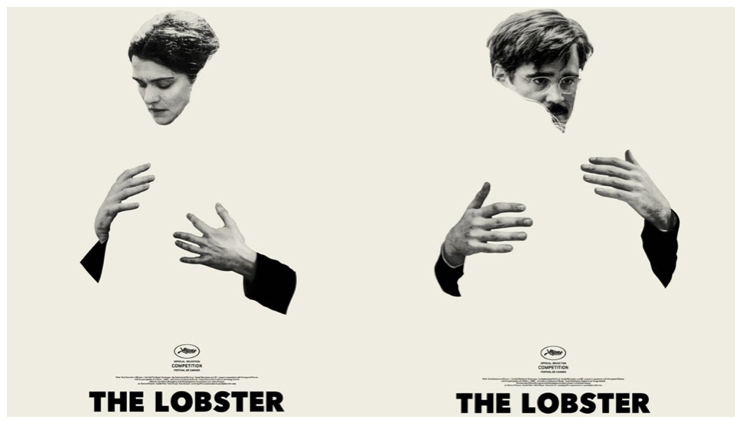“The Lobster”: When the Sin of Being Single Is Unforgivable

Dystopian films are no doubt a popular genre, especially among young adults. From “The Hunger Games” which reflects the animalistic tendencies of teenagers to “Divergent” which emphasizes their rebellious nature, dystopian films tend to be similar to one another. “The Lobster,” however, includes elements of dark comedy and science fiction, bringing something new to the typical dystopian story. Unlike typical dystopian films, which often include many visual effects and action sequences, “The Lobster” depicts a dystopian landscape in a dark, serious, and funny way. Director Yorgos Lanthimos explores the modern dating scene with his sharp commentary, creating a twisted mental society. At its core, “The Lobster” is a critique of modern love, marriage, and societal values, forcing the audience to reexamine themselves and their personal views and value.
Like many sci-fi dystopian films, “The Lobster” takes place in an unspecified futuristic world. Everyone in this society is expected to marry someone similar to themselves or else they risk being treated as and being turned into an animal. Unlike most sci-fi films, “The Lobster” is not visually strange or fantastical. Instead, the film showcases a familiar contemporary environment. This choice was intentional. Lanthimos did not want the audience to perceive the story landscape as some far-away, unattainable world. . The fact that the setting in “The Lobster” looks like our modern-day allows it to provide a solid critique of our current reality.
In such a dystopian world, love and marriage are controlled and surveilled by the government. Being alone and single is considered a crime. Everyone needs to be in a heterosexual relationship. If people fail to comply, they are sent to a hotel where they are treated like and eventually turned into animals. . In this hotel, loners hunt for other runaway loners (who reside in the forest) to extend their days as humans ” “A loner being guilty” is a strict social norm in “The Lobster.”. Loners are discriminated against and even killed. While this may sound like an extreme dystopia, Lanthimos suggests that this world is still relevant to the world we live in today. Conventional social norms and values already shape what we believe to be right or wrong. This film merely exaggerates this concept.
The world in “The Lobster” is depressing and gray. Clouds in the sky block out the sunshine. The damp forest waits for more rainfall.; Harsh winds seem to predict an oncoming dark force. The air feels oppressive and heavy. The hotel allows a single person to find a partner who has similarities to them, which cures loneliness, and is on the edge of a wasteland, signifying the impending end. The hotel’s interior is stifling to make the outdoors appear more appealing; cramped hallways and dim bedrooms make people feel isolated and alone. Besides a place “Transformation Room,” which is room to make people who do not find a partner to transfer to an animal. You’ll have no chance to feel another sci-fi world.
In the world we live in, if a man or a woman stays single, other people tend to look at them differently or judge them silently. Society expects people to settle down with someone at a certain point in their lives.“The Lobster” undermines what it means to be in love and the sanctity of marriage., If people don’t find themselves a partner, they are sent to the “Transformation Room” where they are turned into an animal of their choice. They are eliminated from human society altogether. This society does not care whether or not you are happy in a relationship. It only matters that you are in one. In fact, this is how many people already think and what makes them desperate to find someone, anyone, just so that they aren’t alone and/or judged by others. “The Lobster,” in many ways, amplifies the biggest fears in our subconsciousness.
